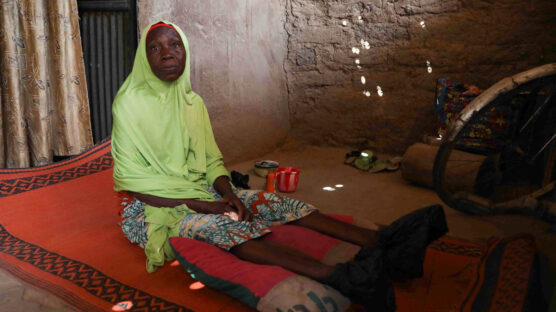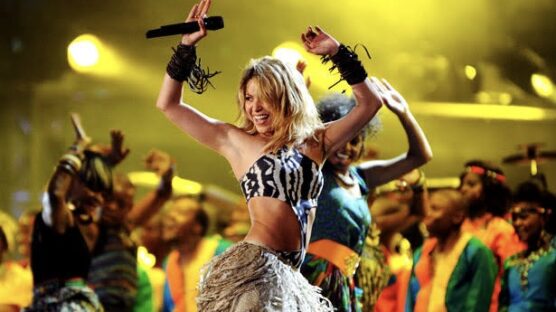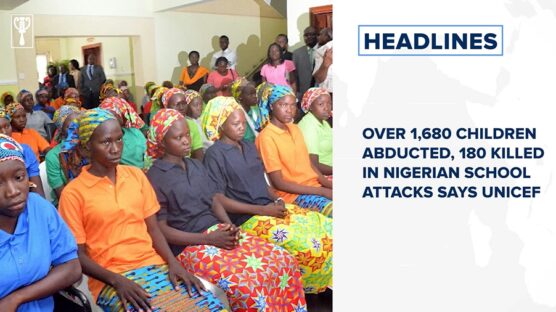We now monitor social media for anti-security information – Nigerian Army
By Channels
24 August 2017 |
8:00 am
We now monitor social media for anti-security information – Nigerian Army
In this article
Related
Related
30 Mar
French Prime Minister Gabriel Attal signals a further tightening of unemployment benefits as France seeks to reduce an unexpectedly large budget deficit. Meanwhile, the government rules out new taxes, despite calls from French lawmakers to tax corporate windfalls and share buybacks. We take a closer look in this edition.
1 Apr
The most addictive Social media platform are YouTube,Facebook,Instagram. YouTube eddiction involves watching excessive amounts of online videos. the biggest effects of social media are listed below.
30 Mar
Members of St. Francis Catholic Church reenact the Stations of the Cross, suffering and death of Jesus during Holy Friday in Ikeja, Lagos, Nigeria.
10 Apr
Nigeria has begun the rollout of the MenFive vaccine in high-risk areas, securing millions of doses to protect children from all five strains of meningitis. The potentially fatal disease poses a grave threat to young children globally, with sub-Saharan Africa being particularly vulnerable to it.
4 days ago
Nigeria's government says the rise will only affect 1.5 million consumers, mostly manufacturers. But analysts believe the hike will lead to higher inflation and result in job losses and closures of businesses.
12 Apr
A decade on, the world has largely forgotten about the Chibok girls, who were kidnapped by Nigeria's Boko Haram Islamist militants. But for victims and their families, like Solomon Maina, who is still waiting for news about his daughter, the tragedy is ongoing.
Latest
48 mins ago
With Nigeria’s key lending rate at 24.75 per cent, developers in Nigeria’s real estate sector say the rate is fast impacting the growth of the industry. How are developers adapting to market shifts and new opportunities amid these challenges? Ayoolanrewaju Kuyebi, the MD and CEO GMH Luxury joins CNBC Africa for this discussion.
59 mins ago
In Nigeria, a pharmacist's club create awareness about andropause. They de-stigmatizes andropause and advocates regularly healthy checks.
59 mins ago
Shakira's song 'Waka Waka' has been labeled the catchiest football song of all time. The iconic anthem 'Waka Waka (This Time For Africa)' was crowned the "catchiest" soccer song of all time by SeatPick. Waka Waka served as the official FIFA song for the 2010 World Cup in South Africa and continues to resonate with fans worldwide.
1 day ago
Find these stories and much more when you grab a copy of The Guardian on Wednesday.
1 day ago
German authorities stepped up border checks, arresting hundreds of people smugglers, Interior Minister Nancy Faeser said. The operation has stopped nearly 18,000 migrants entering the country, she added.
1 day ago
The Israeli and Iranian have different viewpoints on Sunday's attack on Israel, with Iran's press decrying what they call "Western hypocrisy". The news makes the front pages worldwide, with one US paper revealing that half the Iranian missiles failed to even reach Israel.
×

Get the latest news delivered straight to your inbox every day of the week. Stay informed with the Guardian’s leading coverage of Nigerian and world news, business, technology and sports.


















0 Comments
We will review and take appropriate action.